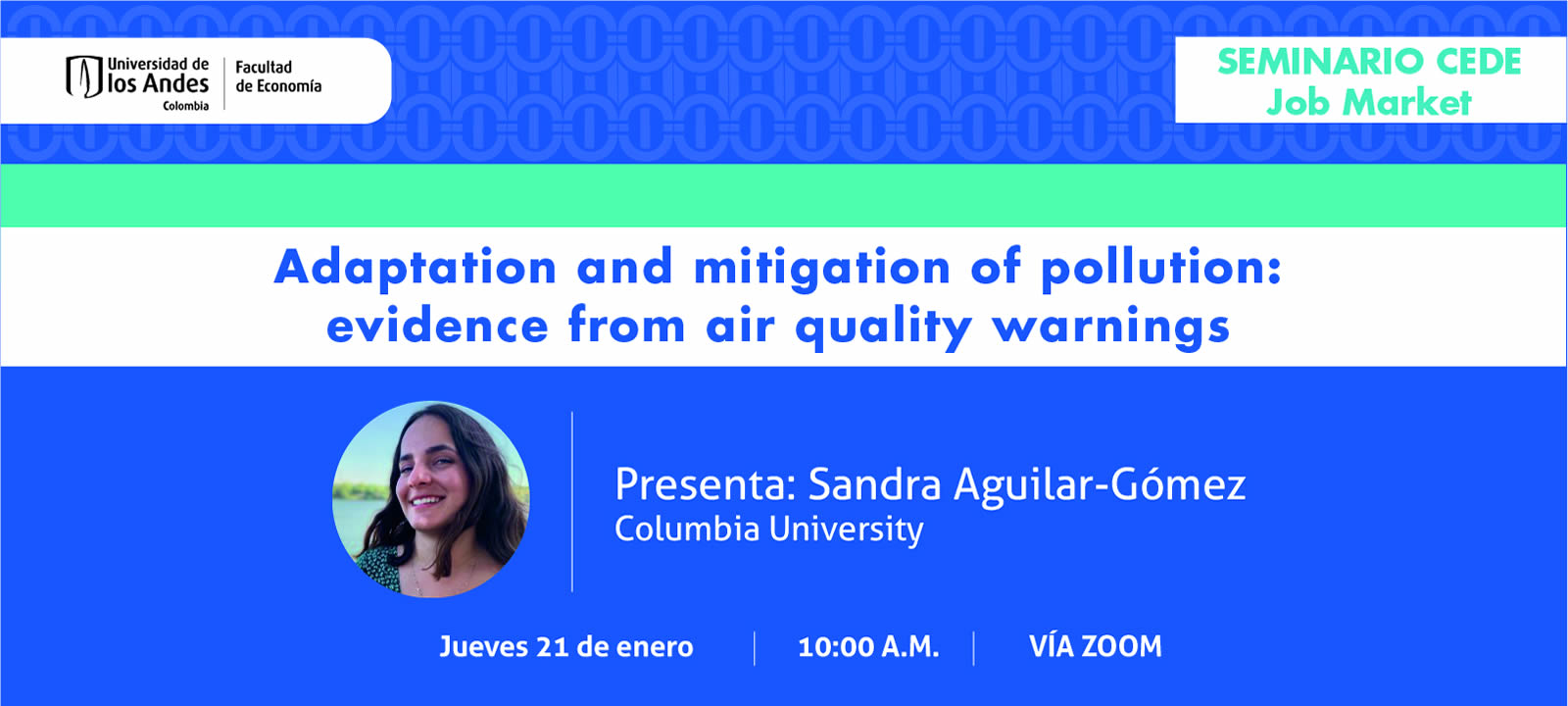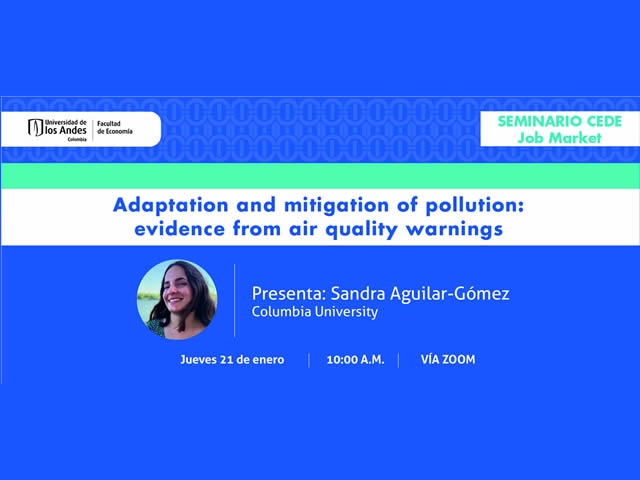Seminario CEDE - Sandra Aguilar-Gómez

Standard economic analyses of environmental policy focus on either reducing pollution externalities through mitigation or reducing the harms from exposure by encouraging adaptation. In practice, these issues are both critical, particularly when looking at the health effects of local air pollutants, which can be acute, and policymakers often pair information provision with short and long-run mitigation actions. This paper studies one widely used example of such a policy— air quality alerts. I explore whether, in the context of the Mexico City air quality alert program, information policy is more effective when paired with mitigation. I find that the policy did not improve air quality or health outcomes until the mitigation component, which limited transport emissions, was introduced. I also use sensor-level traffic data, geo-tagged accident reports, and search data as a measure of awareness of the policy to unveil the mechanisms through which considerable short-run improvements in air quality and health are achieved after issuing an alert. I find that the alert reduces car usage even before the driving restrictions enter into place, suggesting that, due to an increased awareness of pollution, people reduce their trips.

